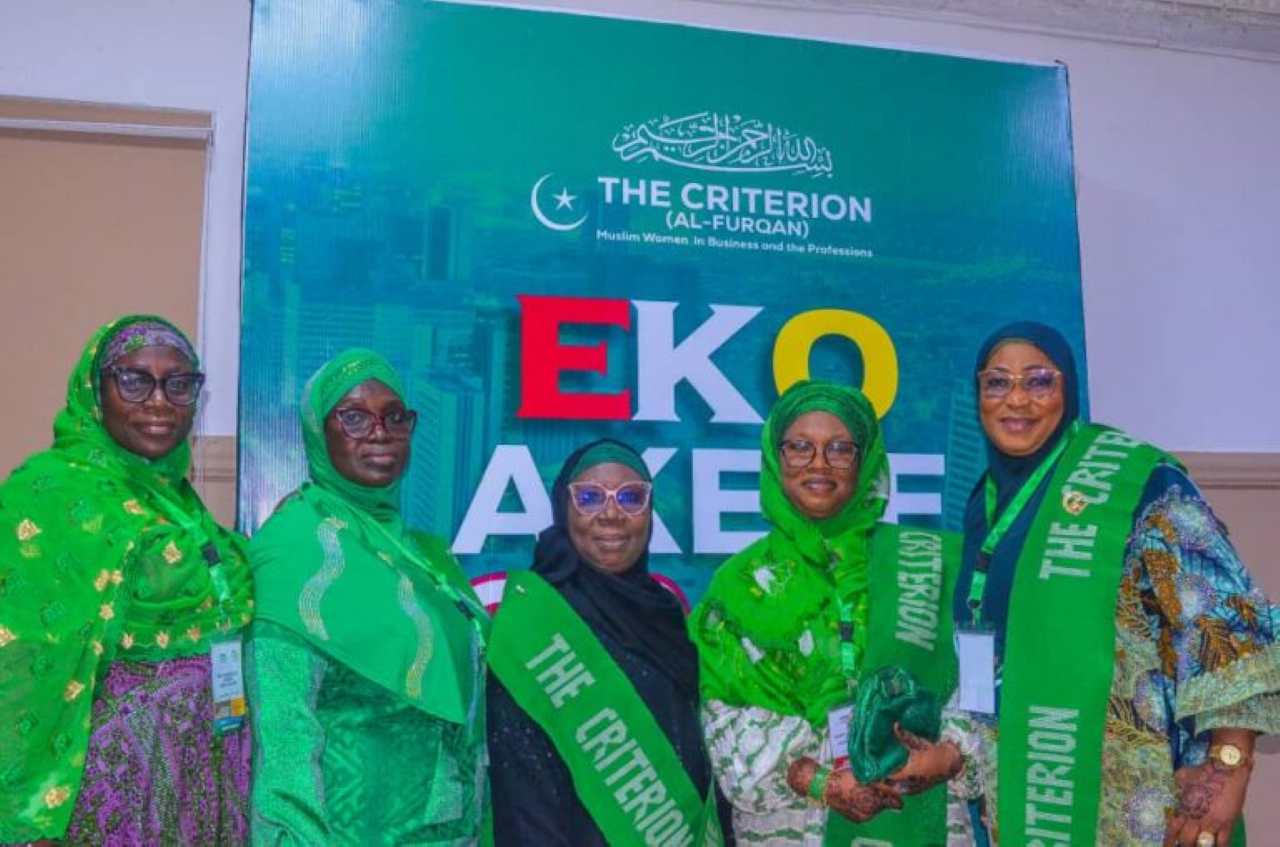In a world increasingly shaped by digital acceleration and ecological uncertainty, the question facing every modern business is no longer whether to innovate, but how to do so responsibly, intelligently, and sustainably. Across boardrooms, universities, tech incubators, and government think tanks, leaders are asking how Artificial Intelligence (AI) can drive not only profit and performance, but also environmental resilience and inclusive growth. Few voices have answered that question as compellingly as Azubike Collins Mgbame, a Nigerian-born scholar and innovator based in Texas.
Through his groundbreaking study, Sustainable Process Improvements through AI-Assisted BI Systems in Service Industries, Mgbame has emerged as a key architect of a transformative vision—one that reimagines how service-based economies across the world, including Nigeria, can leverage AI and Business Intelligence (BI) tools to improve efficiency, elevate customer satisfaction, reduce operational waste, and meet Environmental, Social, and Governance (ESG) objectives without sacrificing agility or competitiveness.
This landmark research, co-authored with a diverse and multidisciplinary team, was published in the International Journal of Advanced Multidisciplinary Research and Studies in 2024. At its core, the study presents a clear and actionable framework for integrating AI into business intelligence systems, enabling service organizations in fields such as healthcare, logistics, hospitality, retail, and finance to become smarter, leaner, more responsive, and more sustainable.
From his base in Texas, Mgbame is shaping conversations that extend across Nigeria, Africa, and the global South—conversations that could ultimately define how emerging economies modernize responsibly in the 21st century.
“AI-assisted BI systems,” Mgbame explains, “offer service providers the opportunity to go beyond trial-and-error or intuition-based decisions. With the right tools, we can predict what clients need before they even ask, optimize how resources are used, and build systems that continuously improve themselves without increasing waste.”
His research begins with a critique of traditional process improvement methodologies, such as Lean, Six Sigma, and Total Quality Management. While these systems have delivered value in the past, they are often slow, manual, and reactive. In contrast, AI-assisted BI platforms enable real-time decision-making, uncover hidden patterns in vast data sets, and generate predictive and prescriptive insights. These platforms can anticipate customer needs, recommend resource allocations, and trigger process optimizations without requiring human intervention for every decision node.
What makes this shift revolutionary is its scalability. In Mgbame’s framework, an AI-assisted BI system can adjust a hospital’s staffing levels based on forecasted patient flow. A hotel can tailor its energy consumption based on occupancy trends. A bank can detect fraudulent transactions as they occur. A logistics company can reconfigure delivery routes on the fly to minimize fuel consumption and avoid traffic congestion.
These aren’t hypotheticals. Mgbame’s paper is filled with evidence-based case studies showing that AI-enabled BI systems have already improved efficiency and ESG performance in a range of service sectors. These are not just wins for corporate bottom lines. They are wins for customers, employees, communities, and the environment.
While much of the global discourse on AI centers around developed nations, Mgbame’s research offers unique value for emerging economies, particularly Nigeria. With a rapidly growing population, increasing urbanization, and an economy in transition from oil dependency to service and knowledge-based sectors, Nigeria is perfectly positioned to benefit from AI-assisted BI solutions.
“Nigeria does not need to wait for Western tech giants to solve our problems,” Mgbame asserts. “We have the talent, the entrepreneurial energy, and the urgency. What we need is the strategic alignment between government, private sector, and academia to embrace AI ethically and locally.”
In the Nigerian healthcare sector, where patient-to-doctor ratios are often stretched and infrastructure is unevenly distributed, Mgbame’s model can help optimize hospital resource utilization and improve care delivery. In logistics and transportation—industries that form the backbone of commerce across Nigeria’s complex geography—AI can reduce bottlenecks, enhance vehicle tracking, and cut down on fuel wastage, directly supporting the country’s climate action agenda.
In retail, where consumer preferences shift rapidly and supply chains face volatility, AI-powered analytics can help stores make smarter inventory decisions, minimizing spoilage and overstocking. In financial services, the ability to detect fraud in real time is a game-changer for a country where digital banking is expanding but consumer trust is still being built.
Most significantly, in the public sector, where service delivery has long been plagued by inefficiencies, corruption, and data fragmentation, Mgbame’s framework can introduce transparency, accountability, and evidence-based planning. This is especially important for ESG compliance, where accurate data collection and real-time reporting are crucial.
Mgbame’s research underscores a critical point: efficiency is no longer enough. The global economy now demands sustainability. Corporations, public agencies, and nonprofits alike are being held to higher standards of environmental and social responsibility. ESG performance is now linked to investment flows, customer loyalty, employee retention, and regulatory compliance.
AI-assisted BI systems are powerful tools for ESG alignment. They can monitor energy use, track carbon emissions, analyze workforce diversity, measure customer satisfaction, and identify ethical risks in real time. Mgbame’s model makes these metrics actionable by embedding them directly into the operations of an organization.
“The systems we are building today,” says Mgbame, “must be capable of justifying every action—not only from a financial standpoint but from a human and planetary standpoint. It’s no longer about how much revenue we generate. It’s about how responsibly we do it.”
One of the key challenges to digital transformation in Nigeria is the mismatch between available skills and emerging technologies. Mgbame is keenly aware of this challenge. That’s why his research includes not only technical recommendations but also workforce strategies.
He advocates for targeted upskilling programs that train Nigerian youth, especially those in underserved communities, to become data analysts, machine learning specialists, sustainability officers, and digital operations managers. These are not theoretical roles. They are rapidly growing professions in the global economy—and Nigeria can no longer afford to sit on the sidelines.
By equipping the next generation with AI and BI competencies, Nigeria can not only address unemployment but also build a digitally literate, sustainability-focused workforce capable of leading the next wave of innovation. As the service sector expands across Africa, the need for tech-savvy, ethically grounded professionals will only grow.
“What I want young Nigerians to know,” Mgbame says, “is that AI isn’t a mysterious force owned by Silicon Valley. It is a tool—and it belongs to all of us. If we learn how to use it well, we can change the trajectory of our country’s economy.”
A distinguishing feature of Mgbame’s work is its cultural adaptability. While the study is globally informed and backed by cross-sectoral data, its framework is modular, meaning it can be applied to both highly developed urban environments and resource-constrained rural areas. This makes it uniquely valuable for countries like Nigeria, where service contexts vary dramatically across regions.
In Lagos, for instance, AI-assisted BI systems could optimize urban traffic flows, enhance smart meter deployment, or digitize healthcare records. In Kebbi or Taraba, the same principles could be applied to optimize agricultural extension services, streamline rural microfinance programs, or improve public school resource allocation.
This flexibility is key to bridging Nigeria’s digital divide. It ensures that innovation does not remain an elite privilege but becomes a national asset.
Mgbame’s leadership is not only academic—it is deeply nationalistic. Though now based in Texas, he remains anchored in Nigeria’s development realities. His work is informed by a deep understanding of the unique challenges facing African economies—data scarcity, infrastructural gaps, policy inconsistencies, and digital exclusion.
By framing his AI-BI model around accessibility, ethics, and sustainability, he provides a roadmap for Nigeria to leapfrog its structural barriers and become a hub of responsible digital innovation.
“Our development goals must be driven by intelligence and transparency,” Mgbame explains. “If we build systems that are accountable to the people and adaptable to our context, there is no limit to what we can achieve.”
He lays out a clear, phased implementation strategy for adopting AI-assisted BI in service contexts. It begins with assessing data maturity, selecting interoperable tools, piloting in non-critical units, training users, and expanding incrementally with continuous feedback loops. He encourages governments to create incentive structures such as tax breaks, grants, or public-private partnerships that lower barriers to AI adoption, especially among SMEs.
Mgbame also urges Nigerian regulators to develop localized ethical frameworks that balance innovation with consumer protection. He advises service firms to stop viewing AI as a future luxury and start treating it as a present-day necessity.
“We have the opportunity now,” he says, “to set the standard in Africa for how AI is used—not to exploit, but to empower. It’s up to us to define what that future looks like.”
In a time of economic fragility, climate urgency, and social change, Azubike Collins Mgbame offers more than a research paper. He offers a bold reimagination of what service economies can be—smart, inclusive, accountable, and sustainable. His AI-assisted BI model is more than a technical fix. It is a moral framework. A design for institutions that not only work better but do better.
From Texas to Abuja, from academia to government, from boardrooms to classrooms, Mgbame’s work is lighting a path toward an intelligent, just, and green future. The question now is not whether Nigeria will embrace that future. The question is how quickly.






